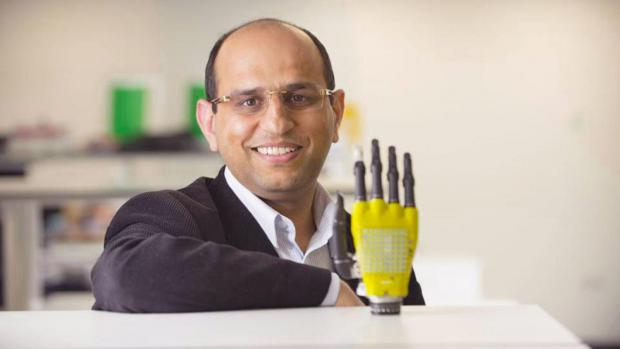
Breaking News
 Watch This BEFORE You Plant Carrots
Watch This BEFORE You Plant Carrots
 What Butter Does to Your Body in 14 Days
What Butter Does to Your Body in 14 Days
 What ACTUALLY Happens When You Pour Vinegar in a Washing Machine?!
What ACTUALLY Happens When You Pour Vinegar in a Washing Machine?!
 Silver Madness: CME Margin Spike + What It Means Next - Mike Maloney
Silver Madness: CME Margin Spike + What It Means Next - Mike Maloney
Top Tech News
 Laser weapons go mobile on US Army small vehicles
Laser weapons go mobile on US Army small vehicles
 EngineAI T800: Born to Disrupt! #EngineAI #robotics #newtechnology #newproduct
EngineAI T800: Born to Disrupt! #EngineAI #robotics #newtechnology #newproduct
 This Silicon Anode Breakthrough Could Mark A Turning Point For EV Batteries [Update]
This Silicon Anode Breakthrough Could Mark A Turning Point For EV Batteries [Update]
 Travel gadget promises to dry and iron your clothes – totally hands-free
Travel gadget promises to dry and iron your clothes – totally hands-free
 Perfect Aircrete, Kitchen Ingredients.
Perfect Aircrete, Kitchen Ingredients.
 Futuristic pixel-raising display lets you feel what's onscreen
Futuristic pixel-raising display lets you feel what's onscreen
 Cutting-Edge Facility Generates Pure Water and Hydrogen Fuel from Seawater for Mere Pennies
Cutting-Edge Facility Generates Pure Water and Hydrogen Fuel from Seawater for Mere Pennies
 This tiny dev board is packed with features for ambitious makers
This tiny dev board is packed with features for ambitious makers
 Scientists Discover Gel to Regrow Tooth Enamel
Scientists Discover Gel to Regrow Tooth Enamel
 Vitamin C and Dandelion Root Killing Cancer Cells -- as Former CDC Director Calls for COVID-19...
Vitamin C and Dandelion Root Killing Cancer Cells -- as Former CDC Director Calls for COVID-19...
Robots Could Soon Have More Sensitive Skin Than You Do

The Skin You're In
Dr. Ravinder Dahiya is the creator of this new "electronic" skin. As he told TedX Glasgow in an interview, it uses a variety of sensors to measure things like pressure and temperature. Dahiya and his team managed to create this extremely sensitive artificial skin using graphene, a material that "despite being just a single atom thick, is stronger than steel, electrically conductive, and transparent," according to a press release.
The extreme sensitivity of the new skin could lead to better prosthetics, where touch is currently a limiting factor. (Watch this cool demonstration that shows just how important touch sensitivity is.) The artificial skin also has a solar panel underneath that absorbs 98 percent of available light, making the entire device self-powered.
The coupling of solar panel technology with artificial skin is a huge breakthrough, but Dahiya and his team aren't stopping there. They hope to bring cheaper prosthetics to market, and eventually create "an entirely energy-autonomous prosthetic limb," Dahiya told Engadget.



